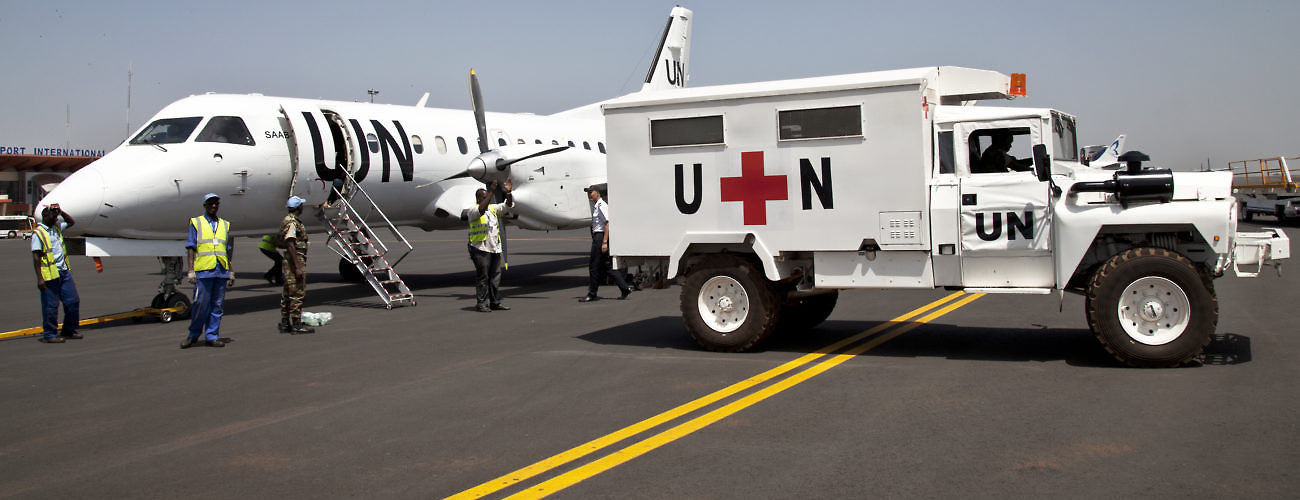A UN plane arrives at the airport in Bamako with the bodies of two Chadian peacekeepers killed in an attack on a checkpoint of the United Nations Multidimensional Integrated Stabilization Mission in Mali (MINUSMA) in Tessalit, Mali, October 23, 2013. UN Photo/Marco Dormino)
The UN is increasingly deploying peacekeepers to conflict theaters where there is no political agreement and little or no peace to keep. Such high-risk environments make it harder for the UN to keep its personnel safe, fit, and healthy. While current UN missions have adopted a number of measures to mitigate these dangers, these do not address the systemic challenges facing medical support to UN peace operations.
This paper asks the question: What are the challenges to providing medical support to UN peace operations in high-risk environments? It analyzes five core challenges facing the UN: (1) medical structures, planning, and coordination in UN headquarters; (2) standards of care; (3) coordination in the field; (4) training and capacity building; and (5) resources and capabilities.
On the basis of these challenges, it offers recommendations for making medical support to peace operations in high-risk environments more efficient and effective:
- The UN Medical Services Division and Medical Support Section should coordinate better and create links with the Office of Military Affairs.
- Medical support planning should be included in every aspect of mission planning and be tailored to the context.
- Missions should shift away from Level II hospitals, which are expensive and underutilized, instead exploring alternatives such as mobile medical units with surgical capabilities.
- Missions should focus on in-mission training, including by improving mentoring of medical personnel.
- MedEvac and CasEvac procedures should be simplified, decentralized, and made more flexible.
- The UN should seek pledges of medical equipment and personnel from member states in a more targeted way.
IPI would like to thank the government of Germany for making this publication possible. IPI would also like to thank the French Ministry of Defence’s Directorate General for International Relations and Strategy and the government of Norway for supporting this series.








